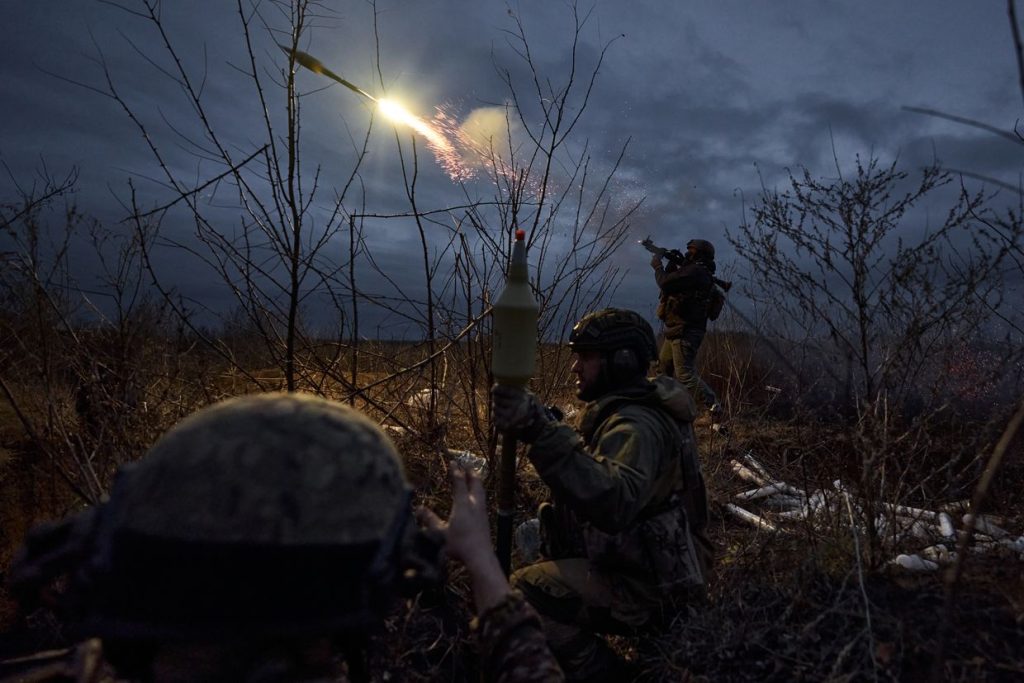NATO intelligence data suggests that Russia is unlikely to launch a large-scale offensive in the near future, as reported by European Pravda on April 4. The Institute for the Study of War mentioned in its April 1 report that Russia may focus an upcoming offensive on the western part of Donetsk Oblast. While Russian forces have a quantitative advantage in terms of weapons and personnel, they lack the necessary ammunition and maneuverable units for a successful major offensive. Russian units on the front line are understaffed and inexperienced, receiving politically-motivated orders with unrealistic goals. Due to these factors, NATO intelligence considers it doubtful that Russia could achieve significant success in an offensive this spring.
President Volodymyr Zelensky had previously warned in February that Russia was preparing to launch an offensive in Ukraine in the spring or the start of summer. Zelensky further cautioned on April 3 that Russia is preparing to mobilize an additional 300,000 soldiers by June 1. Ukraine’s military intelligence also stated in March that Russia is likely to increase its mobilization efforts following Russian President Vladimir Putin’s secured fifth term in office. Ukraine is considering ways to further mobilize troops, with an updated mobilization bill being discussed in the parliament. This situation creates tension and uncertainty regarding a potential escalation of the conflict between Russia and Ukraine.
As NATO celebrated its 75th anniversary, the perception that it is reliant on the United States for defense spending remains a contentious issue. Former U.S. President Donald Trump had criticized America’s transatlantic allies for not contributing enough to defense spending. However, it is important to acknowledge that previous presidents have also raised concerns about NATO members not meeting their defense spending commitments. NATO continues to be a vital alliance for collective security and defense cooperation among its member countries. Each member nation plays a crucial role in maintaining peace and stability in the region.
The ongoing situation in Ukraine and the potential threat of a Russian offensive highlight the importance of a strong and unified defense alliance like NATO. The alliance provides a framework for member countries to work together to address common security challenges and deter potential aggressors. By sharing intelligence and coordinating military efforts, NATO members can effectively respond to emerging threats and protect each other’s territorial integrity. The current situation underscores the need for NATO to remain vigilant and prepared to respond to any potential aggression or destabilizing actions in the region.
In the midst of geopolitical tensions and security concerns, independent journalism in Ukraine plays a crucial role in informing the public and the international community about recent developments and potential threats. By supporting independent journalism in Ukraine, individuals can contribute to the dissemination of accurate and timely information that is essential for understanding and addressing the challenges facing the country. Through factual reporting and investigative journalism, independent media outlets can hold those in power accountable and provide a platform for diverse perspectives and voices to be heard. This is particularly important in conflict zones like Ukraine, where access to reliable information is critical for making informed decisions and promoting transparency.
As the situation in Ukraine continues to evolve, it is essential for the international community to stand in solidarity with the Ukrainian people and support efforts to maintain peace and stability in the region. By staying informed about developments in Ukraine and supporting initiatives that promote security and resilience, individuals can help contribute to a peaceful resolution of the conflict and prevent further escalation of tensions. In times of uncertainty and conflict, solidarity and support for independent journalism, as well as collective defense alliances like NATO, are crucial for upholding democratic values, human rights, and international law. It is through these efforts that progress towards peace and stability can be achieved in Ukraine and beyond.


